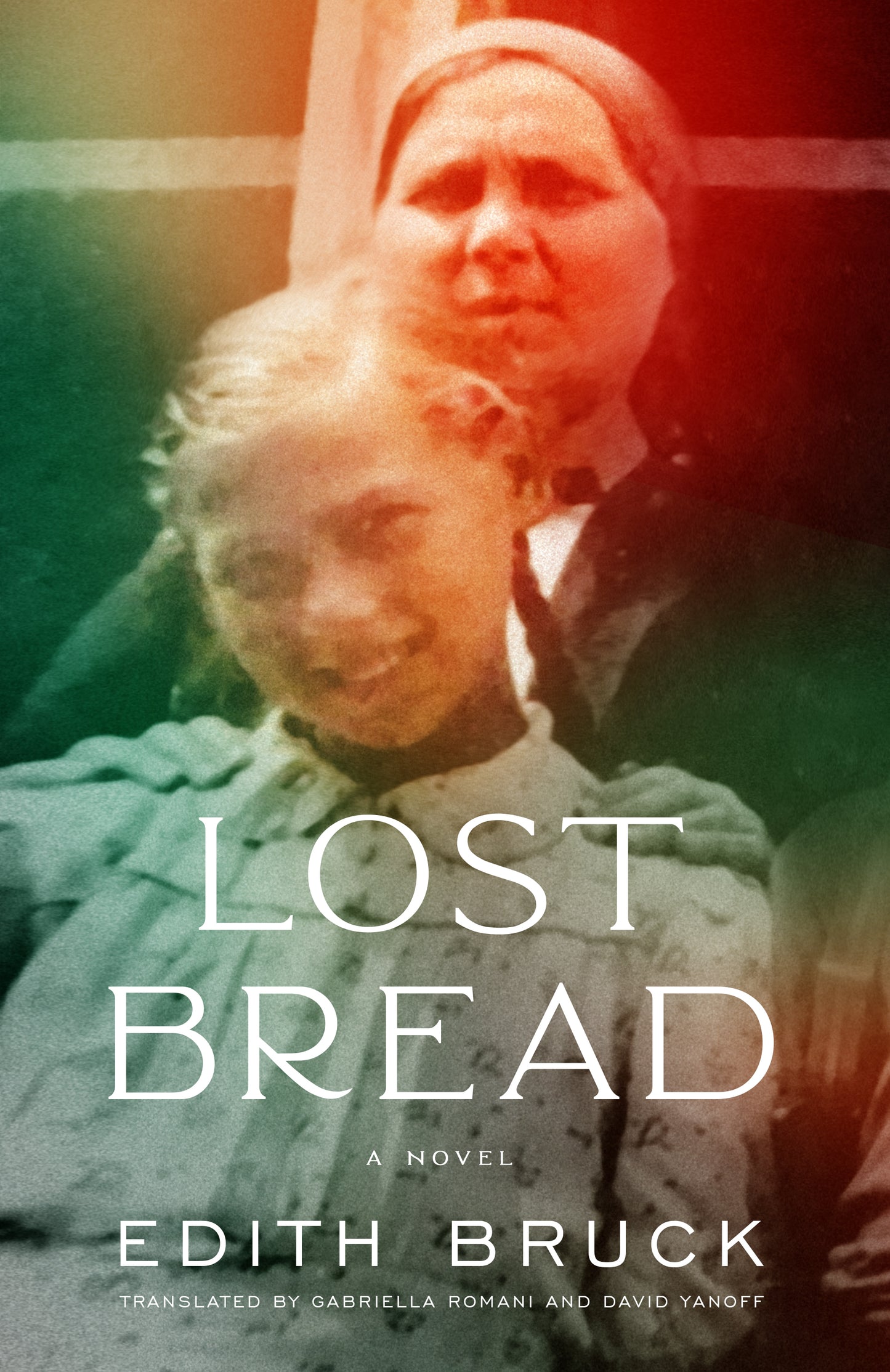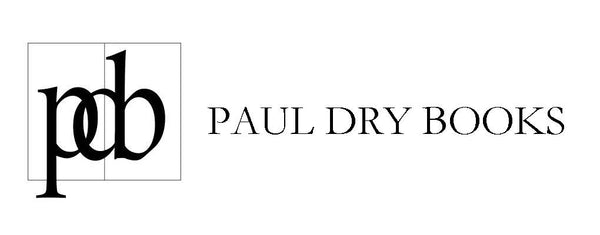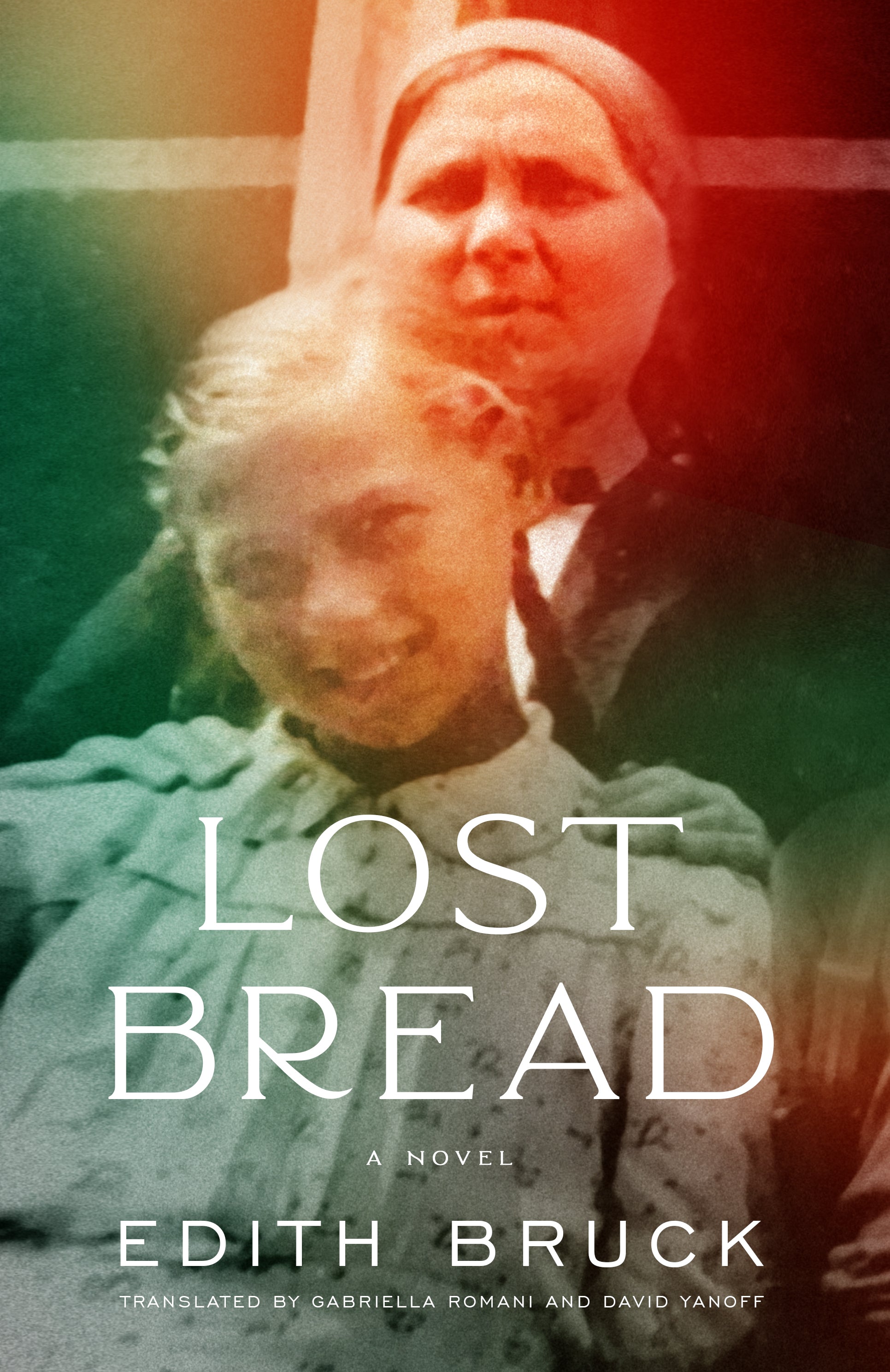Lost Bread
Lost Bread
Edith Bruck
Couldn't load pickup availability
Translated from the Italian by Gabriella Romani and David Yanoff
142-page paperback / 5.5" x 8.5" / ISBN 9781589881785
Publication Date: 7/18/2023
Drawing on the remarkable events of her own life, renowned author and Holocaust survivor Edith Bruck tells the story of Ditke, a young Jewish girl living in Hungary during World War II.
In 1944, twelve-year-old Ditke, her parents, and her siblings are forced out of their home by the Nazis and sent to a series of concentration camps, including Auschwitz and Dachau. Miraculously surviving the war with one of her sisters, but losing her parents and a brother, Ditke begins a tortuous journey—first back to Hungary, where she knows she doesn’t belong, and then to Israel. There, she holds various jobs before she leaves with a dance troupe, touring Turkey, Switzerland, and Italy. In Italy she finds a home, at last, and a small measure of peace; there, too, she falls in love and marries.
Writing as herself, Edith Bruck closes Lost Bread by addressing a letter to God expressing her rejection of hatred, her love for life, and her hope never to lose her memory or ability to continue speaking for those who perished in the Nazi concentration camps. After the book’s publication in Italy, Pope Francis visited Bruck and thanked her for bearing witness to the atrocities of the Holocaust.
PRAISE FOR LOST BREAD:
Shortlisted for the Strega Prize 2021 (Italy)
Winner, Strega Youth Prize 2021 (Italy)
Bruck's "spare prose captures the raw terror and bitter sorrow of the camps. She also finds lyrical beauty and unexpected joy in moments of calm. Reading her work is like breaking bread with her, seeking light amid the shadows cast by history."
—Wall Street Journal
"Bruck’s frequent focus on the period following the liberation of the camps is part of what makes her work original and compelling. Hence, some of the most poignant lines in Lost Bread describe the emotional and geographic dislocation experienced after World War II."
—Boston Globe
"Brutal but hopeful . . . Sobering in its considerations and denunciations of ascendant fascist movements."
—Foreword Reviews
"Riveting."
—Jewish Book Council
“A strong message about the power of memory and human resilience. Because of books like Lost Bread, the story of the Holocaust will never be forgotten.”
—Association of Jewish Libraries
"Many stories have been written about the Holocaust. Lost Bread spends only one chapter on Bruck’s months in the camps. Rather, her story examines the complex response individuals had post-war, asking the important question: what have we learned, if we have learned anything, for Jews as well as non-Jews. While Bruck’s faith remains unsullied, the question she asks remains unanswered."
—Historical Novel Reviews
“Lost Bread adds an essential chapter to the literature of the Holocaust. With a broad transnational sweep, it recounts a refugee's search for a new home, from country to country, until finally settling in Italy. In this elegant translation, the voice of Edith Bruck—Italy's most important witness together with Primo Levi—reaches the English reader with all its poignance and raw emotional power.”
—Michael F. Moore, translator of The Drowned and the Saved, by Primo Levi, and The Betrothed, by Alessandro Manzoni
“Written with the emotional honesty and intimate authenticity that only a Holocaust survivor can claim, Edith Bruck’s Lost Bread is a remarkable testimony to the author’s human spirit and the blossoming of life after the Holocaust. Beginning in a small village in Hungary, Bruck tells the story of Ditke’s unlikely survival through a ghetto and concentration camps before claiming and creating a new life in Israel and Italy. Lost Bread is a beautifully crafted, urgent novel that achieves the highest goals of Holocaust fiction: to leave the reader with more compassion and understanding for survivors of the Shoah. An unforgettable, triumphant account. ”
—Anna Salton Eisen, author of Pillar of Salt: A Daughter's Life in the Shadow of the Holocaust and The 23rd Psalm: A Holocaust Memoir (National Jewish Book Award Finalist)
“With every line of Lost Bread Edith Bruck entrusts to her readers the memories that the atrocity of the Shoah could not destroy. Memory is the salvation that defies horror. Memory keeps alive the unwavering love that a mother kneads into the bread she bakes for her children. This English translation of Bruck’s forceful—yet delicate and immensely dignified—testimony preserves the intensity of the original Italian. When you slowly turn the last page of the book, you know that the tenderness and the poignancy of that lost bread will stay with you forever.”
—Helena Sanson, Professor of Italian, History of Linguistics, and Women’s Studies, University of Cambridge
“Lost Bread is Edith Bruck’s ‘long poem written by life,’ a minimalist fable that deftly distills the vileness of the Holocaust into heart-wrenching observations and moments that dance precariously between horror and hope. Writing in her adopted language—Italian—Bruck sheds the misery her native Hungarian tongue fated her to, allowing Bruck to find sense in survival, if not in her prior destiny. She finally speaks her name, makes peace with God, and graces our world with the gift of powerful, needful witness testimony, wielding prose honed as sharp as a diamond that cuts. A stunning addition to the Holocaust canon.”
—Tara Lynn Masih, author of My Real Name Is Hanna (National Jewish Book Award Finalist)
"A fast-paced, unadorned, and intensely compelling saga of Holocaust survival and its aftermath. While the memoir begins as a folk tale about a girl who walked barefoot in the warm dust of a rural village 'long long ago,' it soon becomes a searing historical chronicle whose narrator takes on the first-person urgency of a protagonist living through the reality of the Shoah. The 'lost bread' of her mother’s lament on the eve of deportation has a powerful, and ironic Biblical charge. This leave-taking is an inverse Exodus—there is no staff-of-life to lead Hungarian Jews in 1944 to a Promised Land. Edith Bruck can only retrieve that loss through her writing. If there is a Promised Land in Bruck’s narrative, it is Italy, which gave her the community and the language to bear witness. And thanks to Gabriella Romani and David Yanoff’s superb translation, (framed by Romani’s Introduction and her 2022 interview with Bruck), we too can be its recipients."
—Millicent Marcus, Sarai Ribicoff Professor of Italian Studies, Yale University
“All Edith Bruck’s life’s work is a testimony, and ultimately the extreme, desperate, word-filled effort to make the incomprehensible comprehensible.”
—Corriere della Sera Sette (Italy)
“A testimony that teaches us to look at reality and discover fragments of beauty and hope.”
—L’Osservatore Romano (Vatican City)
“Lost Bread is part of the great autobiographical accounts of the Shoah and the deportation.”
—Agence France-Presse
Read an American Scholar article on the work of Edith Bruck and other women who survived the Holocaust: The Forgotten Writers of the Shoah
Also available as an e-book:
Amazon
Apple iTunes Bookstore
Barnes & Noble
Google Play
Kobo (See IndieBound's list of independent booksellers selling e-books.)
Edith Bruck is the author of more than twenty books, both prose and poetry, devoted to her life-long commitment to Holocaust testimony, starting with Who Loves You Like This (1959, Italian edition; 2001, English edition, Paul Dry Books). Her books have been translated into many languages including English, French, German, Dutch, Polish, Hungarian, and Hebrew. She lives in Rome.
Gabriella Romani is Professor of Italian at Seton Hall University. With Brenda Webster she translated Edith Bruck’s Letter to My Mother (2006) and Enrico Castelnuovo’s The Moncalvos (2017). She is from Rome and now lives in Philadelphia.
David Yanoff is an attorney and author from Philadelphia.


